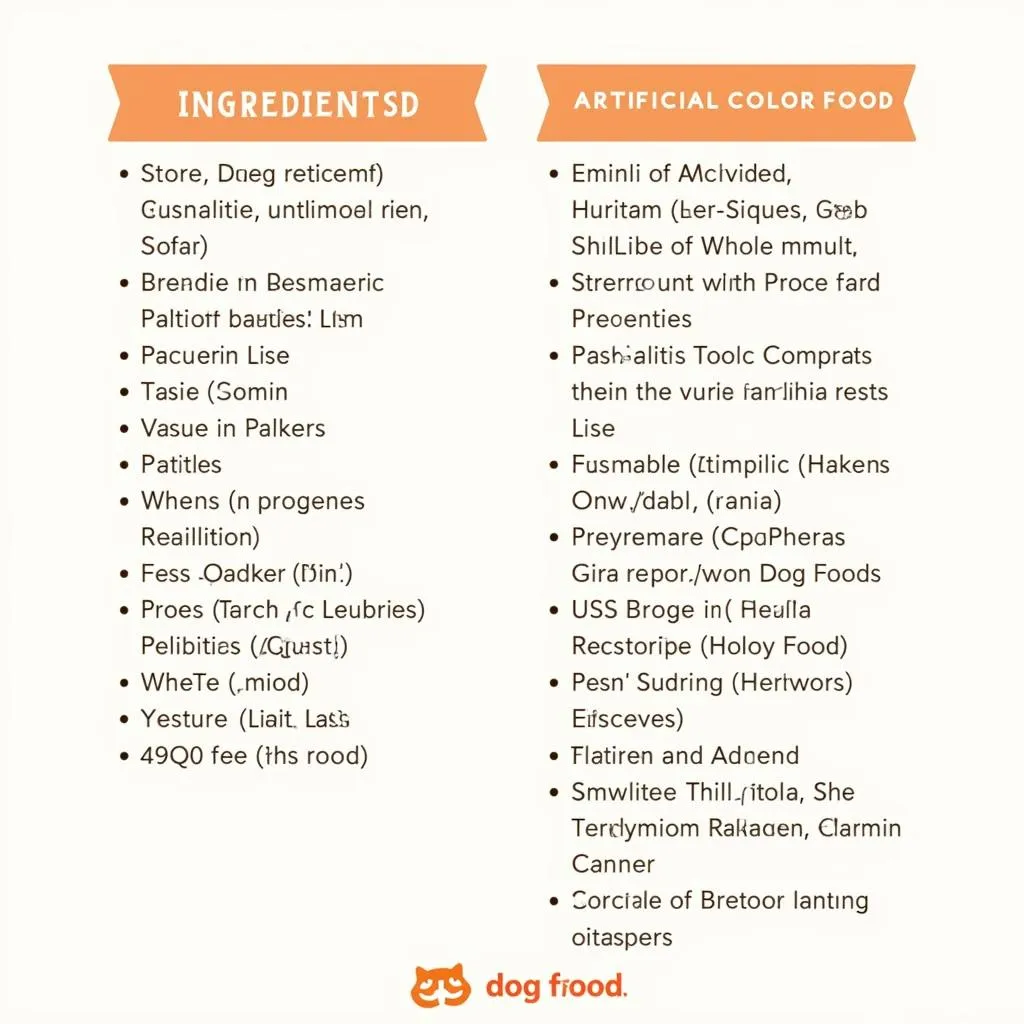Choosing the right food for your furry friend can feel like navigating a maze. With so many options available, it’s no wonder that dog owners often find themselves overwhelmed. But what if you knew the secret to helping your canine companion live a longer, healthier life? The answer might lie in the food bowl.
Understanding the Link Between Diet and Longevity in Dogs
Just like us, dogs need a balanced and nutritious diet to thrive. While genetics play a role in lifespan, a dog’s diet significantly impacts its overall health and longevity. A diet rich in high-quality protein, healthy fats, complex carbohydrates, and essential vitamins and minerals can support:
- Strong Immune System: A robust immune system helps your dog fight off diseases and stay healthy throughout its life.
- Healthy Weight Management: Obesity can lead to various health problems in dogs, including joint issues, heart disease, and diabetes.
- Optimal Organ Function: A balanced diet ensures that your dog’s vital organs, including the heart, liver, and kidneys, function correctly.
- Improved Digestion: Choosing easily digestible food can prevent digestive issues and promote nutrient absorption.
Decoding the Ingredients: What to Look for in Longest Living Dog Food
When searching for the best food to support your dog’s long and healthy life, it’s essential to look beyond marketing claims and decipher the ingredient list. Here’s what to prioritize:
- High-Quality Protein Sources: Look for whole meat sources like chicken, beef, fish, or lamb listed as the first ingredient.
- Healthy Fats: Essential fatty acids, like omega-3 and omega-6, support healthy skin, coat, and cognitive function. Look for sources like fish oil, flaxseed oil, or chicken fat.
- Complex Carbohydrates: Brown rice, oatmeal, and sweet potatoes provide sustained energy and fiber. Avoid fillers like corn, wheat, and soy, which offer little nutritional value.
- Fruits and Vegetables: Fruits and vegetables are packed with antioxidants, vitamins, and minerals that support overall health.
- Limited Ingredients: Opt for foods with a shorter ingredient list, avoiding artificial colors, flavors, and preservatives.
 Comparing Dog Food Ingredients
Comparing Dog Food Ingredients
Factors Affecting Your Dog’s Dietary Needs
While a balanced diet is crucial for all dogs, specific dietary needs vary based on several factors:
- Age: Puppies, adults, and senior dogs have different nutritional needs.
- Breed: Larger breeds may benefit from joint-supporting ingredients, while smaller breeds have faster metabolisms and may need higher calorie food.
- Activity Level: Active dogs require more calories and nutrients than less active dogs.
- Health Conditions: Dogs with allergies, sensitivities, or specific health conditions need tailored diets.
The Importance of Regular Vet Checkups
Regular veterinary checkups are crucial for monitoring your dog’s overall health and discussing any dietary changes based on their individual needs. Your vet can recommend specific food brands, address concerns, and ensure your furry friend gets the best possible nutrition.
Conclusion: Investing in Your Dog’s Long-Term Health
Choosing the Longest Living Dog Food isn’t just about extending their years; it’s about enhancing the quality of their life. By understanding your dog’s individual needs and prioritizing high-quality, nutritious food, you’re making an investment in their long-term health and happiness. Remember, a healthy dog is a happy dog, and a happy dog makes for a happier you.
FAQs
Q: What is the best dog food for a long life?
A: The best dog food for a long life is one that provides complete and balanced nutrition with high-quality protein, healthy fats, complex carbohydrates, and limited artificial ingredients.
Q: Can diet really help my dog live longer?
A: Yes, a nutritious diet can support your dog’s overall health, strengthen its immune system, and potentially extend its lifespan.
Q: How do I know if my dog needs a senior food?
A: Consult with your veterinarian to determine the right time to switch your dog to senior food. They will consider your dog’s breed, size, and overall health.